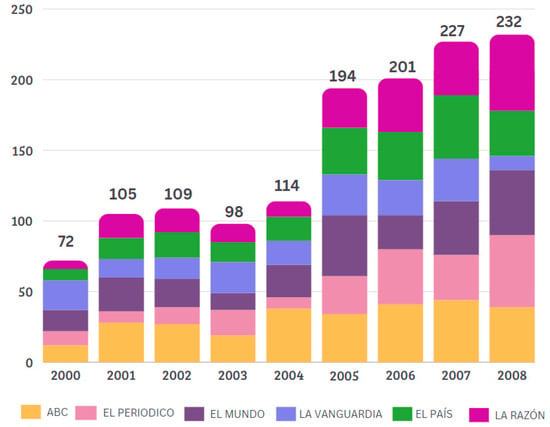Journal Description
Societies
Societies
is an international, peer-reviewed, open access journal on sociology, published monthly online by MDPI.
- Open Access — free for readers, with article processing charges (APC) paid by authors or their institutions.
- High Visibility: indexed within Scopus, ESCI (Web of Science), RePEc, EconBiz, and other databases.
- Journal Rank: CiteScore - Q2 (General Social Sciences)
- Rapid Publication: manuscripts are peer-reviewed and a first decision is provided to authors approximately 32.6 days after submission; acceptance to publication is undertaken in 3.8 days (median values for papers published in this journal in the second half of 2023).
- Recognition of Reviewers: reviewers who provide timely, thorough peer-review reports receive vouchers entitling them to a discount on the APC of their next publication in any MDPI journal, in appreciation of the work done.
Impact Factor:
2.1 (2022);
5-Year Impact Factor:
1.8 (2022)
Latest Articles
The Role of News Media in Reducing Traffic Accidents
Societies 2024, 14(5), 56; https://0-doi-org.brum.beds.ac.uk/10.3390/soc14050056 - 23 Apr 2024
Abstract
►
Show Figures
Traffic accidents represent a major problem worldwide. Public and private entities launch communication campaigns in order to educate the population about this problem. The aim of this study is to analyze the evolution of the presence of road safety in the Spanish media
[...] Read more.
Traffic accidents represent a major problem worldwide. Public and private entities launch communication campaigns in order to educate the population about this problem. The aim of this study is to analyze the evolution of the presence of road safety in the Spanish media and its influence on the reduction of road accidents. A content analysis of six major Spanish newspapers between 2000 and 2008 (an important period in the reduction of the accident rate in Spain) was carried out in which the presence of news related to traffic accidents and the intensity of them were quantified using a set of criteria designed for this study. Furthermore, the correlation between the accident rates and the presence and intensity of news in the same time frame was measured. There has been an evident increase in the news related to traffic accidents during the analyzed period, both in terms of the presence of such news in general and in terms of intensity. The correlation analysis also shows a strong relationship between the increase in news presence and intensity and a sharp fall in accident rates in Spain. Although correlation analysis is not enough to establish a causal relationship between the variables studied here, the findings suggest that informative campaigns had a positive effect on encouraging pro-social behavior, were successful in disseminating related information, and, therefore, contributed significantly to lowering accident rates, although that was not the only reason.
Full article
Open AccessArticle
Exploring Narratives of Teachers Working with Culturally Diverse Students: Any Insights about Inclusion?
by
Eleni Samsari, Nektaria Palaiologou and Georgios Nikolaou
Societies 2024, 14(4), 55; https://0-doi-org.brum.beds.ac.uk/10.3390/soc14040055 (registering DOI) - 21 Apr 2024
Abstract
The aim of the present study is to capture the teachers’ reflections and lived experiences on the inclusion of culturally diverse students in Greek school settings. Through a qualitative narrative inquiry approach, teachers share their personal accounts and stories about their efforts, initiatives,
[...] Read more.
The aim of the present study is to capture the teachers’ reflections and lived experiences on the inclusion of culturally diverse students in Greek school settings. Through a qualitative narrative inquiry approach, teachers share their personal accounts and stories about their efforts, initiatives, and moves towards more inclusive schooling, as well as the barriers they face in the school environment. Five (n = 5) primary school teachers were recruited purposefully because of their work experience with culturally and linguistically diverse (CLD) students in mainstream, integration or reception classes. Narrative-discursive analysis unravels the effectiveness of inclusive practice in Greece for culturally diverse students according to specific aspects of inclusive pedagogy such as progressive education, transformative learning, innovative practices, and strategies, as well as school–family partnership. Teachers’ experiences revealed their complex work to handle the increasing diversity in schools and to respond to all students’ needs in a context of slow but steady measures towards inclusion.
Full article
(This article belongs to the Special Issue Migration and Multilingual Education: An Intercultural Perspective)
Open AccessArticle
Unveiling the Complex Facets of Poverty: Unidimensional and Multidimensional Insights from Rural Areas of Suri Sadar Sub-Division, Birbhum District, Eastern India
by
Ranajit Ghosh and Prolay Mondal
Societies 2024, 14(4), 54; https://0-doi-org.brum.beds.ac.uk/10.3390/soc14040054 - 17 Apr 2024
Abstract
Poverty, particularly in developing regions, is a complex, multifaceted issue deeply embedded in various interrelated factors. It extends beyond mere financial insufficiency, encompassing limited access to essential services such as healthcare, education, and overall living standards. This study examines both the unidimensional and
[...] Read more.
Poverty, particularly in developing regions, is a complex, multifaceted issue deeply embedded in various interrelated factors. It extends beyond mere financial insufficiency, encompassing limited access to essential services such as healthcare, education, and overall living standards. This study examines both the unidimensional and multidimensional aspects of rural poverty in Suri Sadar Sub-Division, located in Eastern India. For the unidimensional aspect, this study employs the poverty headcount ratio and the Poverty Gap Index to gauge the incidence and intensity of poverty. In contrast, the multidimensional approach utilized three dimensions and 12 indicators to assess the incidence, severity, and multidimensional poverty index utilizing the Alkire–Foster (AF) methodology. The unidimensional analysis, focusing on income and consumption, highlights significant economic disparities, particularly in the western Community Development Blocks, namely, Khoyrasole, Md. Bazar, and Rajnagar. The highest levels of multidimensional poverty are generally consistent with the unidimensional findings, particularly in the western blocks. These results underscore the need for comprehensive poverty reduction strategies that address both economic and broader aspects of poverty. In areas like the western blocks, where both income-based and multidimensional poverty rates are high, strategies should integrate economic development, improved healthcare access, enhanced educational quality, and living standards improvement. Therefore, this study serves not only as an academic endeavor but also as a vital tool for informed policymaking in poverty alleviation, providing planners, administrative officials, and researchers with essential insights to develop effective, localized, and sustainable poverty reduction strategies.
Full article
(This article belongs to the Topic Social Sciences and Intelligence Management)
►▼
Show Figures
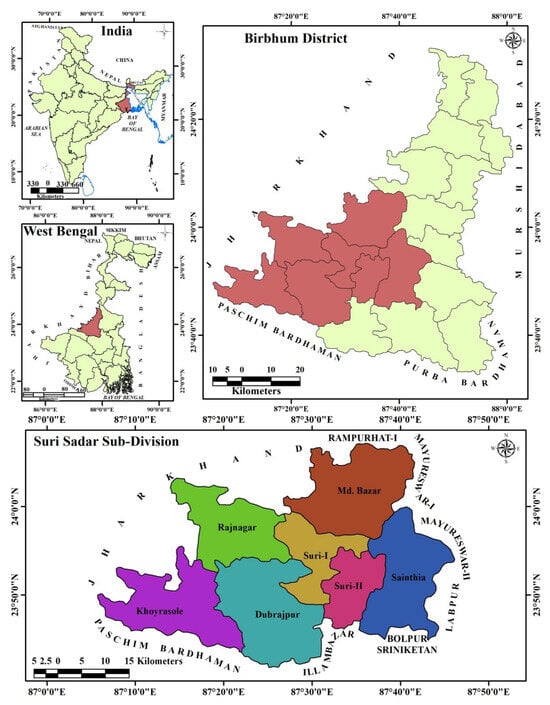
Figure 1
Open AccessArticle
What Are the Current Directions in the Local Marketplaces Fiscalization? The Online Media Content Analysis
by
Stefan Denda, Marko D. Petrović, Zlata Vuksanović-Macura, Milan M. Radovanović and Edna Ely-Ledesma
Societies 2024, 14(4), 53; https://0-doi-org.brum.beds.ac.uk/10.3390/soc14040053 - 17 Apr 2024
Abstract
►▼
Show Figures
Local markets have been a special setting throughout human history. Apart from their important social role, they had immeasurable economic importance as primary forms of exchange of goods (trade). Nonetheless, they experienced numerous transformational changes that affected their functioning. Like other countries, Serbia
[...] Read more.
Local markets have been a special setting throughout human history. Apart from their important social role, they had immeasurable economic importance as primary forms of exchange of goods (trade). Nonetheless, they experienced numerous transformational changes that affected their functioning. Like other countries, Serbia has a long tradition of market activity. However, several novelties have been introduced in recent years. Among many, the process of e-fiscalization is the main issue. Therefore, the focus of our research is based on a qualitative analysis of online media content (news and comments) related to the fiscalization of market activity. The attitudes of different categories of participants (state authorities, vendors, and customers) were analyzed. LIGRE open-access software was used for this purpose. The results of the analysis showed conflicting parties. Legislators emphasize the exclusive positive effects, while vendors point to the negative side of fiscalization. As a third party, customers (service users) have an undefined attitude in relation to fiscalization (pros/cons/neutral). There is an agreement to introduce market activity into legal flows. However, the key prerequisite is the prior resolution of a number of problems (working conditions, business costs, market monopoly, etc.).
Full article
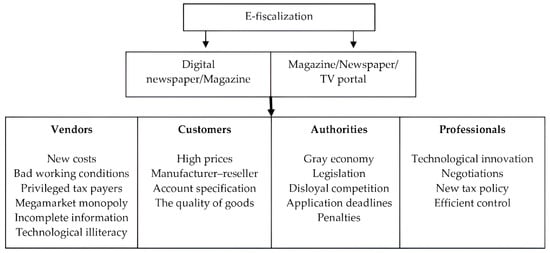
Figure 1
Open AccessArticle
Medical Students’ Views on Cannabis Use in Recreational Contexts Are Related to Their Own Consumption Intention
by
Anca-Livia Panfil, Simona C. Tamasan, Lucretia Marin-Bancila, Bianca Matei, Minas G. Musca, Claudia C. Vasilian, Alina Petrica and Diana Lungeanu
Societies 2024, 14(4), 52; https://0-doi-org.brum.beds.ac.uk/10.3390/soc14040052 - 11 Apr 2024
Abstract
Health professionals are regarded as important sources of information and guidance for healthy living. Knowing health determinants and risks, and invested with credibility in society, many struggle with their own human limits to apply these principles. A cross-sectional study was conducted among advanced
[...] Read more.
Health professionals are regarded as important sources of information and guidance for healthy living. Knowing health determinants and risks, and invested with credibility in society, many struggle with their own human limits to apply these principles. A cross-sectional study was conducted among advanced medical students to assess their attitude towards recreational cannabis consumption, intention to use it, and their opinion of its legal status. Secondary objectives were to explore the relation of these primary outcomes to: (a) potentially addictive habits (such as smoking and drinking); (b) individuals’ disturbances in self-organization (DSOs), defined in the ICD-11 as pervasive chronic effects of traumatic experiences or stressful events. An anonymous online questionnaire active in November 2022 collected data from 171 medical students, of which almost 56% were in favor of recreational cannabis legalization. In a logistic regression analysis, each additional point of own consumption intention (on a scale from 1 to 5) was found to increase the odds of a positive opinion of legalization by three times, when controlling for gender, age, smoking, drinking, onset age of smoking, and DSO: OR = 2.918, 95%CI (1.893–4.497). In conclusion, health professionals’ personal beliefs and practices regarding substance use have a significant subjective component.
Full article
(This article belongs to the Special Issue Healthy Lifestyle: The Relevance of Health Promotion for Society)
►▼
Show Figures
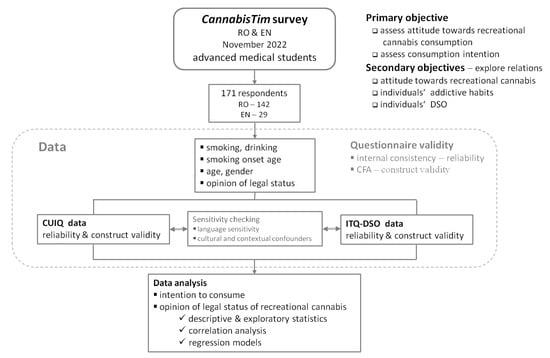
Figure 1
Open AccessArticle
Vulnerability to Sex Trafficking: Adult Women’s Experiences While They Were Adolescents
by
Karla Lorena Andrade-Rubio, José Moral-de-la-Rubia and Simón Pedro Izcara-Palacios
Societies 2024, 14(4), 51; https://0-doi-org.brum.beds.ac.uk/10.3390/soc14040051 - 11 Apr 2024
Abstract
The concept of vulnerability to sex trafficking has been the subject of intense academic debate. It is well documented in the literature that child sex trafficking is facilitated by the abuse of a position of vulnerability, though limited research has focused on children’s
[...] Read more.
The concept of vulnerability to sex trafficking has been the subject of intense academic debate. It is well documented in the literature that child sex trafficking is facilitated by the abuse of a position of vulnerability, though limited research has focused on children’s order of birth as an element of vulnerability to sex trafficking. The objective of this article, based on a sample of 112 Central American women smuggled to the United States for the sex trade before they had attained the age of eighteen years, is to examine whether the order of birth constitutes an element of vulnerability to sex trafficking. Trafficked minors had vulnerabilities linked to structural-level and individual-level factors. We conclude that sisters occupying the first place in the order of birth are the most susceptible to being recruited by an international network that smuggles women for prostitution. On the contrary, the youngest and middle sisters are less at risk due to the protection and guidance of the other sisters.
Full article
Open AccessArticle
Enhancing Productivity at Home: The Role of Smart Work and Organizational Support in the Public Sector
by
Barbara Barbieri, Marina Mondo, Silvia De Simone, Roberta Pinna, Maura Galletta, Jessica Pileri and Diego Bellini
Societies 2024, 14(4), 50; https://0-doi-org.brum.beds.ac.uk/10.3390/soc14040050 - 10 Apr 2024
Abstract
►▼
Show Figures
In recent years, Italian Public Administrations (PAs) have swiftly adapted to flexible work arrangements due to the impact of COVID-19. The flexible work has led to addressing new challenges including the need to balance work demands with family commitments, a lack of social
[...] Read more.
In recent years, Italian Public Administrations (PAs) have swiftly adapted to flexible work arrangements due to the impact of COVID-19. The flexible work has led to addressing new challenges including the need to balance work demands with family commitments, a lack of social support, struggles with inadequate technology, and managing home interruptions that negatively affect home performance. Based on the job demands-resources (JD-R) model, the present study aims at examining the negative impact of home interruptions on smart working performance and the moderating role of two potential job resources: organizational support and perceived quality of the smart working. A convenience sample of 301 Italian public employees engaged in smart working completed an online questionnaire. Multivariate regression analysis results showed that organizational support plays a moderating role in reducing the negative effect of interruptions on home performance. However, the findings did not support a moderating role for the perceived quality of smart working. Overall, these findings highlight the critical role of social factors in buffering the negative effects of smart working, as compared to the quality of the technological arrangements. This information could be valuable for organizations looking to enhance the effectiveness of smart working by focusing on organizational support.
Full article
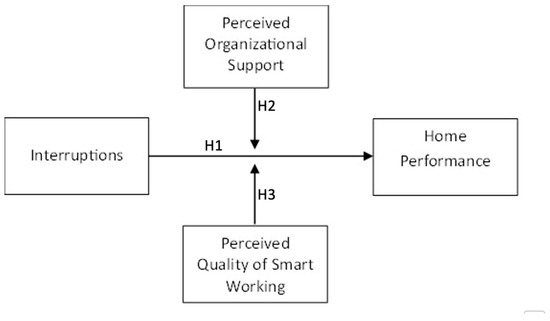
Figure 1
Open AccessArticle
From Scientific Journals to Newspapers in Spain: Interest in Disinformation (2000–2023)
by
Beatriz Catalina García, María del Carmen García Galera and Mercedes Del Hoyo Hurtado
Societies 2024, 14(4), 49; https://0-doi-org.brum.beds.ac.uk/10.3390/soc14040049 - 09 Apr 2024
Abstract
►▼
Show Figures
As disinformation has become a topic of conversation in the media in recent years, the theory of agenda setting is once again making its presence known. The aim of this research is to verify the degree of interest in disinformation by the media
[...] Read more.
As disinformation has become a topic of conversation in the media in recent years, the theory of agenda setting is once again making its presence known. The aim of this research is to verify the degree of interest in disinformation by the media (mainstream press) and in academic writing (scientific communication journals) according to frequency and whether or not such disinformation can be observed in the field of science. The primary research has been carried out through quantitative content analysis of three Spanish newspapers (El País, Abc, El Mundo) and 32 Spanish scientific communication journals included in the SJR-SCImago Journal Rank database from the year 2000 to 2023. The results were 732 units of analysis. From those, it can be concluded that once again, the pandemic represents a before and after. Firstly, a general increase in disinformation has been observed, as well as a corresponding rise in false information in certain fields of science, especially that of health. Secondly, a gradual increase in public interest in disinformation has also been detected, which indicates that the issue is on the agenda of both the media and citizens.
Full article
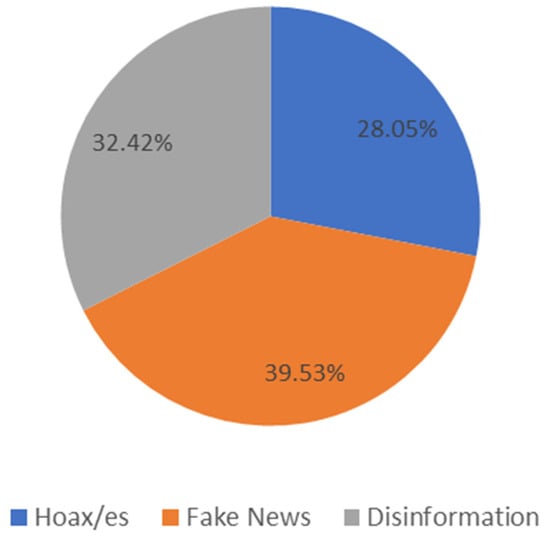
Figure 1
Open AccessArticle
Toward Gender Understanding: Examining Ambivalent Sexism among University Students and Its Impact on Faculty Evaluation
by
Amaia Yurrebaso Macho, Raquel Guzmán-Ordaz, Eva Picado-Valverde and Álvaro Jáñez González
Societies 2024, 14(4), 48; https://0-doi-org.brum.beds.ac.uk/10.3390/soc14040048 - 08 Apr 2024
Abstract
This study examines gender differences in levels of sexism among university students and evaluates variations in assessing sexist attitudes toward professors. The aim is to analyze potential disparities between men and women regarding ambivalent sexism (both hostile and benevolent) and to determine if
[...] Read more.
This study examines gender differences in levels of sexism among university students and evaluates variations in assessing sexist attitudes toward professors. The aim is to analyze potential disparities between men and women regarding ambivalent sexism (both hostile and benevolent) and to determine if these differences influence the evaluation of specific behaviors by teaching faculty. Additionally, the present study seeks to validate the variability hypothesis, asserting that men are over-represented in the extremes of distributions compared to women concerning analyzed sexist attitudes. Eighty university students participated voluntarily and anonymously, completing three questionnaires on ambivalent sexism, neosexism, and the assessment of sexist behaviors by their instructors. Consistent with prior research, the results reveal higher levels of sexism among men in this context. Despite these differences, both men and women align in evaluating specific behaviors in teaching faculty, irrespective of their individual levels of sexism. Finally, the data presented support the variability hypothesis, indicating greater variability in sexist attitudes among men than women. These findings suggest that general attitudes assessed in most questionnaires might not be representative of the behaviors and attitudes that people display in real specific situations. This could change how future research and interventions approach these issues.
Full article
(This article belongs to the Special Issue Critical Thinking, Gender, and Education)
►▼
Show Figures
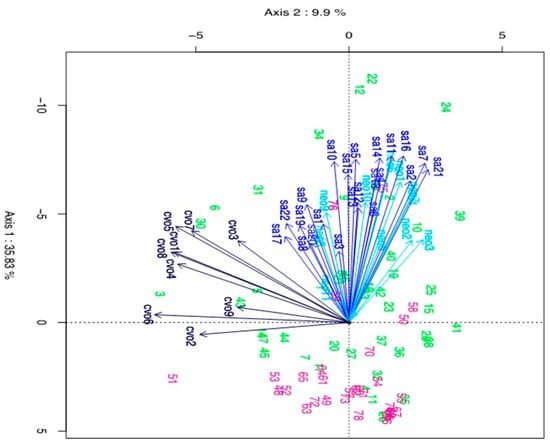
Figure 1
Open AccessConcept Paper
Taking Back Control: Human Rights and Human Trafficking in the United Kingdom
by
Todd Landman, Ben Brewster and Sara Thornton
Societies 2024, 14(4), 47; https://0-doi-org.brum.beds.ac.uk/10.3390/soc14040047 - 03 Apr 2024
Abstract
Modern slavery and human trafficking are well recognized as significant problems in need of legislation, policies, and actions from a wide range of stakeholders in the United Kingdom. The passage of the UK Modern Slavery Act 2015 is a hallmark of these concerns
[...] Read more.
Modern slavery and human trafficking are well recognized as significant problems in need of legislation, policies, and actions from a wide range of stakeholders in the United Kingdom. The passage of the UK Modern Slavery Act 2015 is a hallmark of these concerns and has made the UK a world leader in the fight against modern slavery and human trafficking, a legislative development that is in line with the country’s broader formal commitment to the international and European human rights regime. In the post-Brexit period, however, there has been an increasing de jure conflation of modern slavery and human trafficking with efforts to curb immigration, leading to a significant questioning of the UK’s commitment to human rights. This article locates the consideration of human rights and human trafficking within these broader political trends in order to understand the prospects for meaningful measures to combat modern slavery and human trafficking in the future.
Full article
(This article belongs to the Special Issue Human Trafficking and Human Rights)
►▼
Show Figures
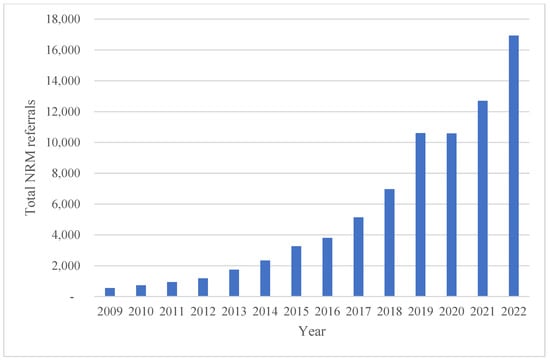
Figure 1
Open AccessArticle
The Perspectives of Māori and Pasifika Mate Kirikōpū (Endometriosis) Patients in Aotearoa New Zealand
by
Katherine Ellis, Jordan Tewhaiti-Smith, Deborah Munro and Rachael Wood
Societies 2024, 14(4), 46; https://0-doi-org.brum.beds.ac.uk/10.3390/soc14040046 - 30 Mar 2024
Abstract
Experiences with endometriosis have been understudied in indigenous and people of colour populations. This study aimed to investigate the experiences of Māori and Pasifika endometriosis patients in Aotearoa New Zealand. Twenty-seven Māori endometriosis participants from 21 iwi (tribes), and 10 Pasifika participants from
[...] Read more.
Experiences with endometriosis have been understudied in indigenous and people of colour populations. This study aimed to investigate the experiences of Māori and Pasifika endometriosis patients in Aotearoa New Zealand. Twenty-seven Māori endometriosis participants from 21 iwi (tribes), and 10 Pasifika participants from 8 different island nations participated in online, asynchronous, anonymous text-based discussions about their endometriosis journeys. Their explanations were analysed qualitatively with an inductive thematic approach. The average delay from symptom onset to a confirmed or suspected endometriosis diagnosis was 11.6 ± 7.8 years in the Māori cohort and 12.4 ± 6.2 years in the Pasifika cohort. There were high levels of dissatisfaction with the availability of treatment, with 66.7% of Māori participants and 60.0% of Pasifika participants feeling that endometriosis treatment was not readily available to them. Poor experiences with the medical profession might dissuade Māori and Pasifika patients from seeking care, exacerbating a culture of distrust and perpetuating healthcare inequities. This could potentially be improved by increasing the capacity to take time for relationship building within general practice or through the incorporation of cultural advisors to support relationship establishment that emphasises holistic consideration of patient well-being and culturally safe care.
Full article
(This article belongs to the Topic Diversity Competence and Social Inequalities)
►▼
Show Figures

Figure 1
Open AccessArticle
Informing the Design of an Accessible Arabic Typeface: A Visual Analysis to Identify Letterform Features of Dyslexia-Friendly Typefaces
by
Muneera Mohamed Hejres and Amanda J. Tinker
Societies 2024, 14(4), 45; https://0-doi-org.brum.beds.ac.uk/10.3390/soc14040045 - 29 Mar 2024
Abstract
Dyslexia-friendly typefaces for the Latin script have been proliferating during the past decade. The typefaces are designed to tackle the challenges faced in a dyslexic reading experience by manipulating their letter forms and typographic attributes; several studies reported a positive effect on the
[...] Read more.
Dyslexia-friendly typefaces for the Latin script have been proliferating during the past decade. The typefaces are designed to tackle the challenges faced in a dyslexic reading experience by manipulating their letter forms and typographic attributes; several studies reported a positive effect on the reading experience. To this date, no working dyslexia-friendly Arabic typefaces are available for the public. The present study is part of a larger practice-based research, where a novel dyslexia-friendly Arabic typeface is designed using a user-centred design approach. The current visual analysis marks the developmental phase, identifying the letterform features of dyslexia-friendly Latin typefaces that can be mapped to the Arabic script. This article explores the typographic features of dyslexia-friendly Latin typefaces by conducting a qualitative visual analysis; a proposed modified version of Leeuwen’s Typographic Distinctive Features Framework is employed. The results are discussed considering the Arabic script’s visual implications in a dyslexic reading experience. The findings of this study are used to create a list of design considerations for a dyslexia-friendly Arabic typeface.
Full article
(This article belongs to the Special Issue Visual Arts and Design: Practice-Based Research)
►▼
Show Figures

Figure 1
Open AccessArticle
Social Justice Profiles: An Exploratory Study towards an Empirically Based Multi-Dimensional Classification of Countries Regarding Fairness of Participation in Higher Education
by
Pepka Boyadjieva, Kaloyan Haralampiev and Petya Ilieva-Trichkova
Societies 2024, 14(4), 44; https://0-doi-org.brum.beds.ac.uk/10.3390/soc14040044 - 25 Mar 2024
Abstract
►▼
Show Figures
The aim of this article is to suggest a better—theoretically and empirically grounded—understanding of the complex character of social justice in higher education. Theoretically, this article conceptualises social justice in higher education as mediating participation in, completion of and outcomes from higher education.
[...] Read more.
The aim of this article is to suggest a better—theoretically and empirically grounded—understanding of the complex character of social justice in higher education. Theoretically, this article conceptualises social justice in higher education as mediating participation in, completion of and outcomes from higher education. It introduces the concept of composite capability for achieving higher education that captures capabilities to participate in, complete and gain outcomes from higher education. This study also develops a methodology for building an empirically based classification of countries regarding social justice in participation in higher education, taking into account the assessed inequality in students’ pathways to higher education as well as inequality in their social conditions, associated with students’ social origin. In so doing, it develops three indices: the index of inequalities in students’ pathways, the index of inequalities in students’ social conditions and the index of participation in higher education. Using microdata from the EUROSTUDENT VII survey (2019–2021) for 12 European countries, it applies the developed methodology to classify countries, for which data are available, by the degree of fairness in participation in higher education. This study’s results demonstrate the social embeddedness of social justice in higher education in different economic and political contexts.
Full article
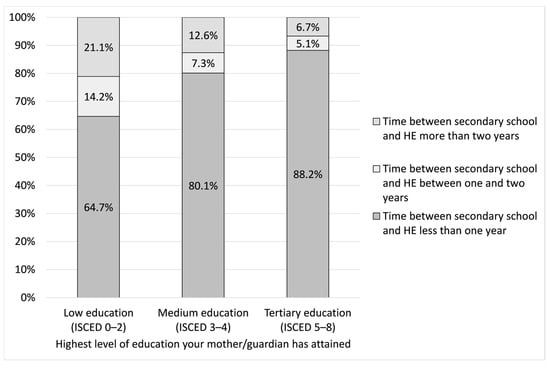
Figure 1
Open AccessArticle
Disinformation and Fact-Checking in the Face of Natural Disasters: A Case Study on Turkey–Syria Earthquakes
by
Sandra Méndez-Muros, Marián Alonso-González and Concha Pérez-Curiel
Societies 2024, 14(4), 43; https://0-doi-org.brum.beds.ac.uk/10.3390/soc14040043 - 23 Mar 2024
Abstract
Natural disasters linked to contexts of unpredictability and surprise generate a climate of uncertainty in the population, resulting in an exponential increase in disinformation. These are crisis situations that cause the management of public and governmental institutions to be questioned, diminish citizens’ trust
[...] Read more.
Natural disasters linked to contexts of unpredictability and surprise generate a climate of uncertainty in the population, resulting in an exponential increase in disinformation. These are crisis situations that cause the management of public and governmental institutions to be questioned, diminish citizens’ trust in the media, and reinforce anonymity in social networks. New digital algorithms create a scenario plagued by fake news and levels of viralization of rumors never before contemplated. Our objective is to analyze the verification capacity of fact-checking agencies at X at times of information disorder, such as the Turkey–Syria earthquakes in 2023. We apply a mixed methodology of comparative content analysis to government, news agency, and IFCN accounts, generating a general sample (n = 46,747) that is then subjected to thematic categorization to create a specific sample (n = 564). The results indicate a low commitment to fact-checking on the part of official bodies and news agencies, as opposed to fact-checking agencies’ accurate handling of the facts. The lack of debate and engagement generated by digital audiences in the face of the discursive intentionality of disinformation is significant.
Full article
(This article belongs to the Special Issue Fake News Post-COVID-19)
►▼
Show Figures
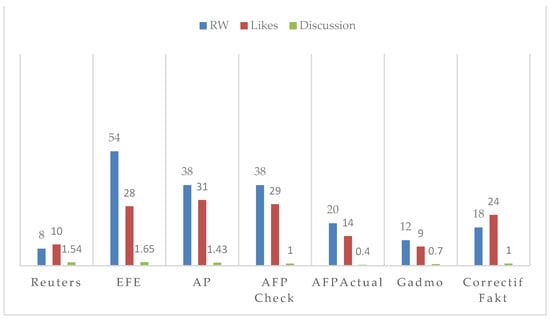
Figure 1
Open AccessArticle
Innovation 4.0 Policies in Italy: Strengths and Weaknesses of the Innovation Ecosystem of the “Transition 4.0” Plan from an International Perspective
by
Francesco Orazi and Federico Sofritti
Societies 2024, 14(3), 42; https://0-doi-org.brum.beds.ac.uk/10.3390/soc14030042 - 19 Mar 2024
Abstract
Innovation 4.0 is a strategic lever of industrial policies. That is the reason why, over the last decade, many European countries have introduced national plans to implement it in their economic fabric. Within this context, this paper focuses on the effects of Industry
[...] Read more.
Innovation 4.0 is a strategic lever of industrial policies. That is the reason why, over the last decade, many European countries have introduced national plans to implement it in their economic fabric. Within this context, this paper focuses on the effects of Industry 4.0 policies in Italy and Europe by presenting the results of a research study on the national and continental ecosystems of innovation. In particular, the study was conducted by involving the main key bodies introduced by the “Transition 4.0” plan in Italy: Competence Centers (CCs), Digital Innovation Hubs (DIHs), and Punti Impresa Digitale (PID). The study adopted a qualitative–quantitative approach: an analysis of gray literature, semi-structured interviews, and a survey involving Italian and European DIHs were carried out. The results highlight an ambivalent scenario: on the one hand, the research suggests that the consolidation of the ecosystems of innovation is underway in Italy and relies on good organizational capacity; on the other hand, the international comparison indicates that the Italian system still suffers from a marked territorial and institutional fragmentation that needs to be addressed in the coming years.
Full article
(This article belongs to the Special Issue Social Interactions and the Technology Development: Perspectives on E-Societies)
Open AccessArticle
An Exploratory Typology for Understanding Family-Relationship Issues in Kinship-Care Placements
by
Amilie Dorval, Sonia Hélie and Marie-Andrée Poirier
Societies 2024, 14(3), 41; https://0-doi-org.brum.beds.ac.uk/10.3390/soc14030041 - 15 Mar 2024
Abstract
Family relationships are a distinctive feature of kinship-care placements, but very few studies have examined how the dynamics of these relationships affect the placement experience. This article does explore these dynamics and identifies some possible patterns, as experienced and reported by parents of
[...] Read more.
Family relationships are a distinctive feature of kinship-care placements, but very few studies have examined how the dynamics of these relationships affect the placement experience. This article does explore these dynamics and identifies some possible patterns, as experienced and reported by parents of children placed in kinship care. The findings presented here come from a qualitative study employing a life-story methodology, in which nine parents were interviewed on two occasions each. All of them had experienced the permanent placement of at least one of their children with a member of their extended family, under the direction of a government child-protection agency. Drawing from significant themes in parental narratives, particularly that of relationships, we analyzed and delineated three distinct profiles. In the first profile, a family solidarity was present between the parents and the kinship caregivers before the placement and was maintained during the placement. In the second, the parents struggled to keep their place in their children’s lives, thus experiencing conflicts both with the kinship caregivers and with the child-protection agency. In the third profile, the dynamics of the current relationship between both biological parents influenced the other family relationships of the parent who was interviewed.
Full article
(This article belongs to the Special Issue Innovative Research on Kinship Care and Its Role in Child Protection and Well-Being)
Open AccessArticle
Beyond Words: Tapping the Potential of Digital Diaries While Exploring Young Adults’ Experiences on Apps
by
Rita Alcaire, Ana Marta M. Flores and Eduardo Antunes
Societies 2024, 14(3), 40; https://0-doi-org.brum.beds.ac.uk/10.3390/soc14030040 - 14 Mar 2024
Abstract
In the dynamic landscape of online interactions, this article explores the use of digital diaries to unravel the intricacy of Portugal young adults’ experiences within the realm of apps and their connection to gender dynamics. By designing a digital participatory research method, we
[...] Read more.
In the dynamic landscape of online interactions, this article explores the use of digital diaries to unravel the intricacy of Portugal young adults’ experiences within the realm of apps and their connection to gender dynamics. By designing a digital participatory research method, we were able to reflect on the participants’ experiences in maintaining the requested diaries, scrutinize the major themes in the narratives generated through this approach, and examine how participants interacted with the prompts sent to them. Therefore, we delved into how participants both challenged and (re)negotiated these solicitations and how their agency led to an untapped reservoir of insights for the project in ways that went beyond words. There were visual and non-verbal elements that brought insights into young adults’ interactions with mobile applications, offering a comprehensive exploration of four key themes: mobile apps as part of young adults’ routines, between performance and authenticity, making the diaries their own, and elaborating on feelings. We also explored diary methods at the convergence of various disciplines and their high potential for contributing to topics related to gender, mental health, productivity, relationships, online identity management, apps in everyday life, intimacy, and more in creative ways.
Full article
(This article belongs to the Special Issue Visual Arts and Design: Practice-Based Research)
►▼
Show Figures

Figure 1
Open AccessArticle
Translation and Validation of the German Version of the Ikigai-9
by
André Hajek, Tadanori Imai, Larissa Zwar and Hans-Helmut König
Societies 2024, 14(3), 39; https://0-doi-org.brum.beds.ac.uk/10.3390/soc14030039 - 13 Mar 2024
Abstract
Background: The Japanese concept of “ikigai” embodies the feeling of having a meaningful purpose in life. It is associated with several positive outcomes. This study aimed to translate and validate the German version of the Ikigai-9 scale (Ikigai-9-G)—and ikigai scores for certain groups
[...] Read more.
Background: The Japanese concept of “ikigai” embodies the feeling of having a meaningful purpose in life. It is associated with several positive outcomes. This study aimed to translate and validate the German version of the Ikigai-9 scale (Ikigai-9-G)—and ikigai scores for certain groups of interest were presented. Methods: Data were taken from a quota sample of the German adult population aged 18 to 74 years (n = 5000; representative in terms of age, sex, and state). Data were collected in August/September 2023. The translation process was conducted in accordance with the existing guidelines. Reliability (Cronbach’s alpha; McDonald’s omega) was assessed. Moreover, we evaluated the structure’s soundness using confirmatory factor analysis for construct validity and examined concurrent validity by exploring pairwise correlations between the Ikigai-9-G with life satisfaction, happiness, health-related quality of life, depressive symptoms, and anxiety symptoms. Additionally, we presented ikigai scores for specific sociodemographic groups of interest. Results: Cronbach’s alpha for the Ikigai-9-G equaled 0.88. The results of confirmatory factor analysis supported the original three-factor model as initially proposed. A higher sense of ikigai was associated with less depressive symptoms (r = −0.43, p < 0.001), less anxiety symptoms (r = −0.39, p < 0.001), higher health-related quality of life (r = 0.42, p < 0.001), higher happiness levels (r = 0.62, p < 0.001), and higher satisfaction with life levels (r = 0.57, p < 0.001). Conclusion: The Ikigai-9 scale is a psychometrically sound tool offering the possibility for assessing ikigai among German speakers. Additional translation and validation studies are required to facilitate comparisons across different countries.
Full article
Open AccessArticle
Examining Financial Hardship and Caregiver Subgroups in Kinship Foster Placements: A Machine Learning Approach
by
Imani Careese Johnson, Solomon Hadi Achulo, Kanisha Coleman Brevard and David Ansong
Societies 2024, 14(3), 38; https://0-doi-org.brum.beds.ac.uk/10.3390/soc14030038 - 08 Mar 2024
Abstract
Children placed with kinship foster parents can experience less disruption and stronger family ties than children in non-kinship placements. However, financial hardship can restrict kinship caregivers from taking in relatives’ children. This study investigated (1) kinship caregivers’ financial standing compared to a national
[...] Read more.
Children placed with kinship foster parents can experience less disruption and stronger family ties than children in non-kinship placements. However, financial hardship can restrict kinship caregivers from taking in relatives’ children. This study investigated (1) kinship caregivers’ financial standing compared to a national subsample of caregivers and (2) whether certain factors moderate the likelihood that a kinship caregiver will be able to provide care for additional non-relative children without additional financial assistance from the Department of Social Services (DSS). This study utilized primary data from 345 relatives across North Carolina and nationally representative secondary data on 6394 individuals’ financial circumstances. One-sample t-tests and chi-square goodness-of-fit tests revealed that caregivers who participated in our study generally fared better financially than caregivers at the national level. Model-based recursive partitioning results showed that if an additional child is placed in the home, the caregiver’s perceived capacity to provide care without extra DSS support decreased by approximately 19%, with a greater decrease (35%) among a subgroup of caregivers with low financial well-being status. The heterogeneity in caregivers’ experiences, capacities, and financial needs buttresses the need for nuanced interventions and programs targeting these caregivers, enabling them to provide more stable care for children placed in their homes.
Full article
(This article belongs to the Special Issue Innovative Research on Kinship Care and Its Role in Child Protection and Well-Being)
►▼
Show Figures
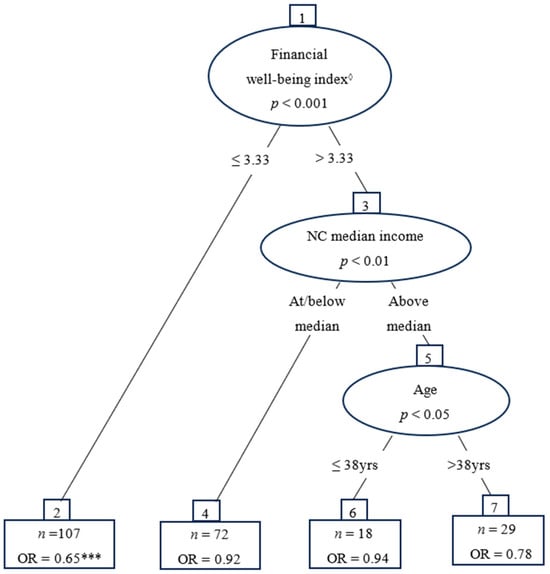
Figure 1
Open AccessArticle
COVID-19, Race, and Crime: An Early Look at Racial Disparities in U.S. Arrest Data throughout the COVID-19 Pandemic
by
Calvin Proffit and Ben Feldmeyer
Societies 2024, 14(3), 37; https://0-doi-org.brum.beds.ac.uk/10.3390/soc14030037 - 01 Mar 2024
Abstract
►▼
Show Figures
Background: This study explores how arrests changed in response to the COVID-19 pandemic across race. Daily life changed for everyone across the country with the onset of the pandemic, and early works have shown that crime changed in this period. Method: Official arrest
[...] Read more.
Background: This study explores how arrests changed in response to the COVID-19 pandemic across race. Daily life changed for everyone across the country with the onset of the pandemic, and early works have shown that crime changed in this period. Method: Official arrest data were pulled from the Indiana State Police database for several violent and property crimes covering 26 counties. Data were gathered from 2017 to 2021 for a comparison of pre-COVID-19 versus after the onset of COVID-19 (2020–2021). An OLS regression was run to assess differences in these patterns of arrests across Black and White populations. Results: This analysis finds that Black homicide, White homicide, and total Black violent crime arrests were significantly related to COVID-19 measures after controlling for other variables. The COVID-19 measures indicate that these crimes saw an increase in arrest after the onset of the pandemic and that these effects may not have been identical across race. Conclusions: The COVID-19 pandemic was linked to crime across race in the state of Indiana. Moving forward, it is important to uncover how crime changed across race in other locales and exactly what mechanisms may have driven these changes.
Full article
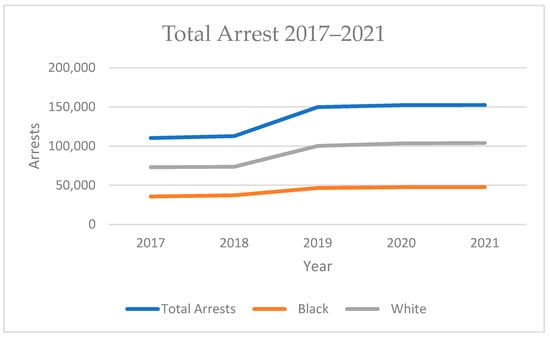
Figure 1
Highly Accessed Articles
Latest Books
E-Mail Alert
News
Topics
Topic in
Administrative Sciences, Education Sciences, Societies, Sustainability
Embedding Sustainability in Organizations through Climate, Culture and Leadership
Topic Editors: Sandro Serpa, Maria José SáDeadline: 31 May 2024
Topic in
Education Sciences, Entropy, JAL, Societies, Sustainability
Sustainability in Aging and Depopulation Societies
Topic Editors: Shiro Horiuchi, Gregor Wolbring, Takeshi MatsudaDeadline: 15 June 2024
Topic in
Laws, Societies, Sustainability
Cannabis Legalization in the United States: Public Policy, Social Welfare, and Public Health Implications
Topic Editors: Robert Mark Silverman, Kelly PattersonDeadline: 30 June 2024
Topic in
Societies, Sports, Healthcare
Sport and Society
Topic Editors: José Carmelo Adsuar, Mitchell Alberto Alarcón Diaz, Jorge Carlos-Vivas, Roxana Paola Palacios Cartagena, Carmen Galán Arroyo, Ana Fondón-LudeñaDeadline: 31 July 2024

Conferences
Special Issues
Special Issue in
Societies
Society and Immigration: Reducing Inequalities
Guest Editors: Ernesto Castañeda, Maria De JesusDeadline: 30 April 2024
Special Issue in
Societies
Interwoven Nuance: An Exploration of Youth Physical Activity Promotion and the Connection to Family Wellbeing
Guest Editors: Andrew Colombo-Dougovito, Yolanda MitchellDeadline: 18 May 2024
Special Issue in
Societies
Exploring Disability in the Digital Realm
Guest Editors: Beth Haller, Jeff PrestonDeadline: 1 June 2024
Special Issue in
Societies
Ageing Societies: Challenges and Opportunities for Public Policy, Innovation, and Community Development
Guest Editor: Andrzej KlimczukDeadline: 30 June 2024
Topical Collections
Topical Collection in
Societies
Community-Based Rehabilitation and Community Rehabilitation
Collection Editor: Gregor Wolbring
Topical Collection in
Societies
Ability Expectation and Ableism Studies (Short Ability Studies)
Collection Editor: Gregor Wolbring




